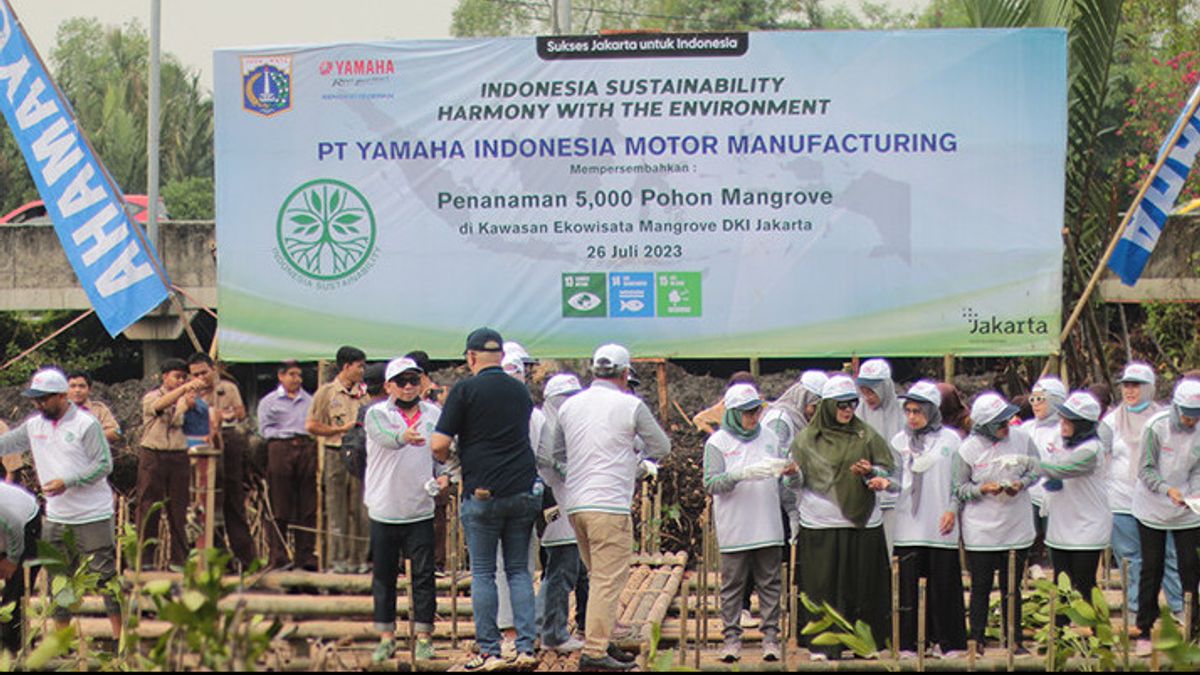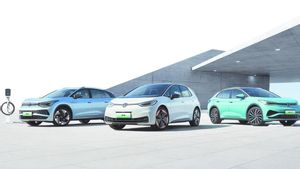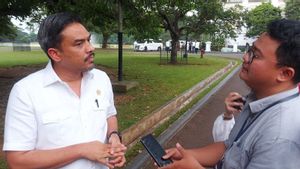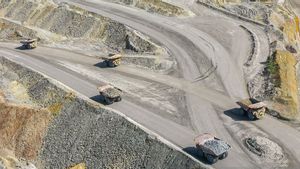JAKARTA - Automotive Yamaha companies play a role in creating a clean and sustainable environment with efforts to plant thousands of mangrove trees.
Coinciding with World Mangrove Day on July 26, PT Yamaha Indonesia Motor Manufacturing (YIMM) held a mangrove tree planting activity at Pantai Indah Kapuk, North Jakarta.
The event was attended by the President Director & CEO of PT YIMM, Dyonsisiun Beti, Deputy Mayor of North Jakarta H. Juaini, representatives of the Directorate of Maritime Industry, Transportation Equipment, and Defense Equipment (IMATAP) of the Ministry of Industry, Head of the DKI Jakarta City Parks and Forest Service, Bayu Megantara, representatives from the DKI Jakarta Environmental Service, as well as the environmental and Scout community.
Carrying the theme "Indonesia Sustainability," this activity is part of the Yamaha Biodiversity Car program which aims to reduce carbon emissions through environmental conservation and biodiversity activities.
Dyonisius Beti, CEO of PT YIMM, stated that this program is in line with Yamaha's strategic plan to achieve Net Zero Carbon or reduce the use of CO2 from Yamaha by 92 percent by 2035.
"This is our proactive form because in terms of time it is faster than the target set by the Government. And one way to achieve that target, now we are contributing to the conservation of the Mangrove forest," said Dyon in his statement, Wednesday, July 26.
Mangrove trees have a positive impact on the environment because they are able to absorb around 1,300 tons of CO2 each year. However, Yamaha does not stop there in carrying out environmental activities. This company also supports controlling global climate change by planting various bamboos in Sumedang, West Java. A total of 1,600 bamboo have been planted, and the number will continue to grow so that the area becomes one of the bamboo forest tourist destinations.
اقرأ أيضا:
In addition, Yamaha has also moved from fossil energy industries to the renewable energy industry in stages. By 2022, Yamaha has achieved 15 percent free use of fossils, and currently together with PLN, they are working towards 2026 with a target of renewable energy capacity reaching 6750 kWp.
The English, Chinese, Japanese, Arabic, and French versions are automatically generated by the AI. So there may still be inaccuracies in translating, please always see Indonesian as our main language. (system supported by DigitalSiber.id)
















